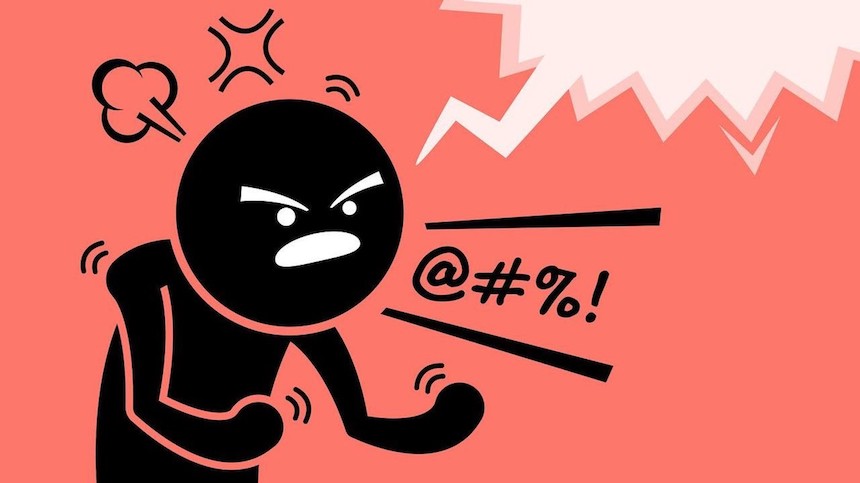Swearing


I’ve recently been involved in a number of conversations about Christianity and swearing.
This week, a Catholic friend whom I very much respect suggested the possibility that it might be okay to “swear intentionally in the proper context”. I took some time to write a substantial reply on social media, so I thought I’d share it here as well, as I think it sums up my main thoughts on the subject…
Objections To Swearing
1. Biblical Baseline
The first objection I see to swearing is the clear motif from Scripture concerning Christian speech. To begin with, we are told that the words of our mouth are important:
Let the words of my mouth and the meditation of my heart be acceptable in your sight, O Lord, my rock and my redeemer.
Psalm 19:14
It is not what goes into the mouth that defiles a person, but what comes out of the mouth; this defiles a person.
Matthew 15:11
I tell you, on the day of judgment people will give account for every careless word they speak, for by your words you will be justified, and by your words you will be condemned.
Matthew 12:36-37
If anyone thinks he is religious and does not bridle his tongue but deceives his heart, this person’s religion is worthless.
James 1:26
Next, we’re told how our speech should be characterized:
Let your speech always be gracious, seasoned with salt, so that you may know how you ought to answer each person.
Colossians 4:6
Then Scripture tells us the sort of thing we should avoid:
Let no corrupting talk come out of your mouths, but only such as is good for building up, as fits the occasion, that it may give grace to those who hear.
Ephesians 4:29
Let there be no filthiness nor foolish talk nor crude joking, which are out of place, but instead let there be thanksgiving.
Ephesians 5:4
Many, many more passages could be cited but I think it’s enough to say that, in light of this Biblical motif*, any talk which could possibly be regarded as “bad” should, by default, not be on our lips. Or, to put it another way, I think the onus falls upon the person in favour swearing to justify their exception.
* I also recently had a conversation on this subject with a quite well-known Protestant apologist and he pointed to St. Paul’s use of the word “skubalon” in his epistle to the Philipppians: “For his sake, I have lost all things and consider them rubbish [skubalon]”. Like him, I had been told that this was an expletive, but that does not appear to be the case (Source 1 | Source 2).
2. The Mary Test
My next objection is just a simple gut check. I’d suggest that if you wouldn’t feel comfortable swearing in front of the Virgin Mary, then you probably shouldn’t be swearing at all *.
* I had one person point out that there are things which are licit which you probably wouldn’t feel comfortable doing in front of the Mother of God, such as making love or going to the bathroom, but I think that’s missing the point. Coitus and defecation are private actions which we normally avoid doing in front of anybody! If you met Queen Elizabeth II, you’d watch the kind of language you used. How much more would you do that with the Queen of Heaven?
3. What does it add?
What value does swearing really add which couldn’t also be achieved with tone of voice or some better-chosen words? Would the homilies of St. Augustine been improved if he’d dropped the occasional f-bomb? Honestly, it seems to me that swearing is just a lazy way of gaining some shock value. It’s a common technique used by substandard stand-up comedians.
4. Cause of scandal
Bad language can very easily be a cause of scandal. Therefore, mimicking the advice of St. Paul concerning food sacrificed to idols (1 Corinthians 8:1-13), I would suggest that charity should compel us to err on the side of abstention when it comes to swearing, for fear that we could scandalize others.
5. “Proper Context”?
My friend’s reference to the “proper context” for swearing seems to me to be a rather dubious concept. Do we ever sit our children down and teach them how to swear and explain to them the context in which swearing is appropriate?
More importantly, I think one would have to work pretty hard to come up with some widely agreed upon parameters to identify this “proper context”. However, let’s say for the sake of argument that there is indeed a “proper context” for swearing. If we are too liberal in determining the valid scenarios, it leads to some very observable problems…
6. Slippery Slope
I’ve noticed that, when those who use swear words more commonly want to really emphasise their point, they have to compound swear words or use more outrageous ones to regain the shock value which is lost by their more common swearing.
7. Habit
Maybe it’s just me, but I don’t know many people who occasionally swear. Those who aren’t shy about swearing seem to do it on a fairly regular basis and will swear even at the most minor of inconveniences. When they try and give up swearing they find it really difficult because they have fostered a habit.
Now, someone might say that abusus non tollit usum, but I’d respond that I haven’t yet heard a compelling case concerning the legitimate use of swearing in the first place.
Conclusion
Just to be clear, I’m not shocked when most people swear. I’ve gone to schools and worked in offices where there was quite profuse swearing, so please don’t think of me as a pearl-clutching prude who can’t handle a bit of blue language.
Having said that, I personally don’t really understand why anyone would even really try to defend swearing, something which only really impresses young schoolboys. To me, there are few other things I find more unattractive than crude language and swearing.

But regardless of my own natural disposition towards swearing, hopefully over the course of this article I’ve shown the intellectual reasons why I think attempts by Christians to legitimize it don’t even really get off the ground.